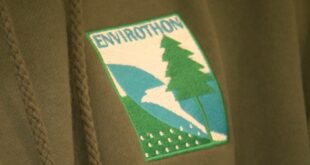Collaboration between ISS National Laboratory and NASA to Advance Research on Cancer and Other Diseases
The International Space Station (ISS) National Laboratory and NASA have joined forces to launch a solicitation aimed at advancing research on cancer and other diseases. The collaboration, known as ISS National Lab Research Announcement (NLRA) 2023-10: Igniting Innovation: Science in Space to Cure Disease on Earth, will provide resource allocation and up to $5 million in funding for two to four projects in multiflight translational and transformative research and technology development.
The Importance of Disease Research on the Space Station
Cancer continues to be a major global health concern, with nearly 2 million new cases expected to be diagnosed in 2023, leading to over half a million deaths. Recognizing the significance of cancer research, the Biden-Harris administration has made it a priority. The White House’s Cancer Moonshot initiative aims to prevent over 4 million cancer deaths by 2047 and improve the experiences of cancer patients. Additionally, the National Low Earth Orbit Research and Development Strategy positions the space-based research community to contribute to the development of innovative treatments for cancer and other diseases.
Research Focus Areas
The NLRA is seeking proposals for multiflight research on the space station that align with the Cancer Moonshot initiative or advance studies on other human diseases. The proposals should aim to accelerate the translation of stem cell- and organoid-based disease models and advanced technologies for biomanufacturing. The key areas of focus for the research include:
- Advancing translation in various disciplines such as bioengineering, biomanufacturing, biotechnology, cell biology, chemistry, material science, tissue engineering, and regenerative medicine.
- Facilitating collaborations between researchers, academia, industry, and government agencies to address complex challenges and promote knowledge-sharing.
- Accelerating the development of products, technologies, therapeutics, and solutions with potential applications in disease prevention, diagnosis, or treatment.
- Exploring how research and technological advancements in low Earth orbit can lead to transformative breakthroughs in innovative treatment and patient care on Earth.
Statements from ISS National Lab and NASA
Michael Roberts, the ISS National Lab Chief Scientific Officer, expressed pride in collaborating with NASA’s Biological and Physical Sciences Division to accelerate scientific discovery and advance disease treatments. Lisa Carnell, the division director for NASA’s Biological and Physical Sciences Division, highlighted the importance of the research in supporting deep-space exploration and astronaut health during future missions.
Proposal Submission Process and Webinar
The NLRA will follow a three-step proposal submission process, including Concept Summary, Technology Roadmap, and Full Proposal. The Concept Summaries must be submitted by September 26, 2023. A webinar hosted by the ISS National Lab on August 24, 2023, will provide more information about the research announcement.
About the ISS National Laboratory
The International Space Station (ISS) is a unique laboratory that enables research and technology development that is not possible on Earth. The ISS National Lab, managed by the Center for the Advancement of Science in Space (CASIS), allows researchers to leverage this facility for various initiatives, including improving life on Earth and advancing space-based business models. The ISS National Lab supports research from government agencies, academic institutions, and the private sector.
About NASA’s Biological and Physical Sciences Division
NASA’s Biological and Physical Sciences Division conducts investigations in space environments to advance scientific knowledge and enable exploration beyond Earth. Studying biological and physical phenomena in extreme conditions helps researchers understand the effects of space on human health and develop technologies for long-duration space missions.
Media Contact: Patrick O’Neill
SOURCE: International Space Station National Lab
 Mind Uncharted Explore. Discover. Learn.
Mind Uncharted Explore. Discover. Learn.

